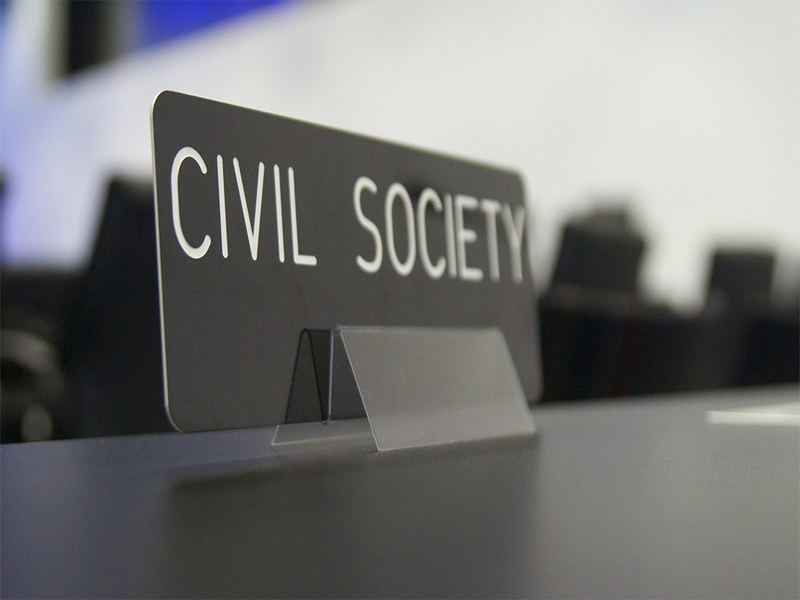ملخص:
على امتداد سنة كاملة، عرف المغرب خلال الفترة ما بين مارس 2013 ومارس 2014 حدثا مهما، تمثل في عقد أضخم حوار بين الدولة وجمعيات المجتمع المدني في تاريخ المغرب، وقد كان من مخرجاته تبلور مجموعة من الالتزامات المشتركة بين الفاعلين الرسمي والمدني، وذلك من أجل تطوير الحياة الجمعوية وتيسير الوسائل الممكنة وتوفير البيئة الملائمة لتمكين جمعيات المجتمع المدني من القيام بأدوارها الدستورية في أحسن الظروف.
في سياق تعقب أثر الحوار الوطني وتوصياته على المستوى الواقعي،تم رصد محدودية كبيرة في تنزيل وإعمال مخرجات الحوار الوطني، فمن جهة، هناك حصيلة هزيلة فيما يتعلق بتفعيل التوصيات ذات الطابع التشريعي كما تبين المعطيات الحكومية، ومن جهة أخرى، لا يزال العمل الجمعوي يعاني من التضييق والتقييد غير المشروع فيما يخص حرياته المكرسة في الاتفاقيات الدولية وبعض التشريعات الوطنية (حرية التأسيس، حريةالفعل، حريةالتمويل…)؛كما أن تجربة الحوار الوطني لم تنعكس على العمل الجمعوي نفسه فيما يتصل بتطوير ذاته وأدائه وأشكال تدخلاته رغم المجهودات الهامة التي يقوم بها في هذا الإطار.
إن تقييم تجربة الحوار الوطني في عمومها، ونحن على مشارف عقد من الزمن، يسمح بالقول أن هناك زمنين منقطعين في هاته التجربة: فهناك زمن الحوار المتسم بالمقاربة التشاركية وإعلان الرغبة في القطع النهائي مع الماضي السلبي، وهناك أيضا بالمقابل زمن ما بعد الحوار المتميز بتكريس نفس الواقع الجمعوي المألوف.
الكلمات المفاتيح:
تجربة الحوار الوطني، التوصيات، الدولة، المجتمع المدني، زمن ما بعد الحوار الوطني، الحريات الجمعوية، بنية الحركة الجمعوية، التعاقد، المشاركة.
Summary:
Over the cours of a full year , Morocco witnessed during the period between March 2013 and March 2014 , an important event , represented in the holding of the largest dialogue between the state and the associations of civil society in the history of Morocco , and among the deliverables of the national dialogue was the crystallization of a set of common commitments between official and civil actors to develop associative life , facilitate the possible means and provide the appropriate environment to enable the civil society associations to carry out their constitutional roles in the best conditions.
In the context of tracing the impact of the national dialogue and its recommendations at the realistic level , a significant limitation has been observed in downloading and implementing the deliverables of this dialogue . On the one hand ,there is apoor outcome related to activating the recommendations of a legislative nature as shown by the government data , and on the other hand , the associative action is still suffering from illegal restrictions in the fields of its freedom enshrined in international agreements and some national legislations (freedom of incorporation , freedom of action , freedom of financing…)
In addition to this ,we could say that the experience of the national dialogue was not reflected in the associative action itself in terms of self-development , its performance and forms of intervention , despite the important efforts employed in this side.
Moreover, evaluating the experience of the national dialogue in general, while we are on the verge of a decade , allows us to say that there are two interrupted periods in this experience: there is a time of a dialogue characterized by participatory approach and showing the will to break with the past, and thereis a post-dialogue era characterized by the dedication of the same familiar associative reality.
Keywords:
The National Dialogue Experience,the Recommendations,the State, The civil Society, Post-National Dialogue Era, The associative liberties,The structure of the associative movement, Contracting , The participation.

سفيان الكمري
باحث في سلك الدكتوراه بكلية العلوم القانونية والسياسية -سطات، المغرب.
إطار عالي متصرف بالوزارة المنتدبة لدى رئيس الحكومة المكلفة بالعلاقات مع البرلمان.
PhD researcher at the Faculty of Legal and Political Sciences, Settat, Morocco.
Administrator at the Ministry Delegated to the Prime Minister in charge of Relations with Parliament.
